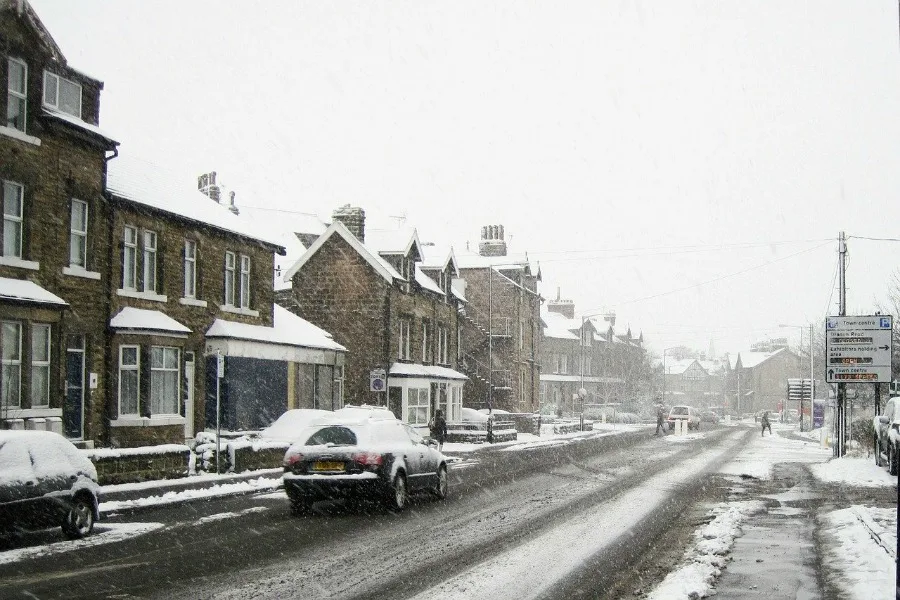This post may contain affiliate links. I only recommend products I use and love. Read the full disclosure here
Last Updated on January 28, 2025 by Alaina
Winter really takes a toll on your vehicle. In addition to the bitter winds, ice, and snow you also have to deal with reduced gas mileage. In fact, according to FuelEconomy.gov, gas mileage on conventional vehicles is about 12% lower at 20 degrees than it is at 77 degrees! Luckily there are some things you can do to get better gas mileage in the cold winter months! Here are six simple ways you can improve winter fuel efficiency.

1. Combine Errands into One Long Trip
A cold engine has to work harder in order to operate in the cold, and while doing so, it uses more gas. You can save gas in the long run by combining your errands and trips, instead of taking several drives throughout the day.
2. Make Your Car More Streamlined
Remove extra accessories that can increase wind resistance and cause your car to work harder. While that roof rack was put to good use last summer, it could be lowering your fuel economy now that winter is here. So ditch those extra accessories and your fuel efficiency will improve.
3. Avoid Idling for Long Periods of Time
Most of us were taught to let our cars idle and warm up before driving off. These days it is no longer necessary. So if you’ve gotten into the habit of starting your car 5 or more minutes before you need to let it warm up, it’s time to change that habit. Instead, start your engine, wait 30 seconds, and then gently drive away. This will allow the engine to warm gradually without wasting fuel.
4. Park Where It’s Warm When Possible
If you have a garage, then winter is the ideal time to use it. Parking your vehicle inside will keep your engine slightly warmer than if your car was parked outside. This, in turn, will reduce the time needed for your engine to warm to a fuel-efficient temperature and it will also keep you from having to use the defrost feature which can lead to getting fewer miles per gallon.
5. Keep An Eye on Tire Pressure.
Tire pressure is directly related to fuel efficiency. In cold temperatures, tires can lose air pressure which in turn negatively impacts your fuel efficiency. So remember, lower air pressure equals lower fuel economy. Reduce your gas costs by checking your tire pressure often and inflating as needed.
6. Clean off Snow and Ice Regularly
A car or truck that is loaded down with snow or ice will run less efficiently as it has to use more gas to get going. Clean off any snow and de-ice your vehicle before you start driving. If you have an open bed truck, keep the back clear of debris, snow, and ice, too. Not only will this help lower gas costs, but it is also a lot safer for you and those driving around you.
7. Keep Up with Regular Maintenance
One of the best ways to make sure your car is running its best is regular preventative maintenance. Schedule services as suggested in your owner’s manual. This will help keep it running correctly and in turn help improve fuel efficiency during the winter and the rest of the year, too. Be sure to take it to a trusted mechanic or to the car dealership where you bought it.
Final Thoughts on How to Improve Winter Fuel Efficiency
Winter can be taxing on your car and your wallet. If you are looking to put a freeze on your fuel spending, use these tips and tricks to maximize fuel economy.
